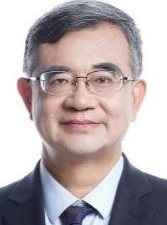
Prof. Ali Emrouznejad
Professor and Chair in Business Analytics
Director, Centre for Business Analytics in Practice
Surrey Business School, University of Surrey, UK
Speech Title: Computational Intelligence and Optimization Techniques for Performance Prediction in Information Systems
Speech Abstract: The integration of computational intelligence and optimization techniques has become essential for evaluating and predicting performance in information systems. These advanced methodologies enable the analysis of large datasets, the identification of inefficiencies, and the enhancement of decision-making processes. By combining artificial intelligence (AI) algorithms, such as neural networks, alongside optimization models like Data Envelopment Analysis (DEA), predictive frameworks can forecast system performance based on current data. This facilitates proactive decision-making and optimized resource allocation, ultimately improving efficiency and effectiveness in information-driven environments.
In this talk, we will explore the application of DEA in measuring the efficiency of information systems. ...more...
Bio: Ali Emrouznejad is a Professor and Chair in Business Analytics at Surrey Business School, UK. He is also director of the Centre for Business Analytics in Practice, where he leads research efforts in a variety of areas, including AI and big data as well as performance measurement and management, efficiency and productivity analysis. He serves as an editor, associate editor, or member of the editorial boards for multiple scientific journals and has published over 250 articles in top-ranked journals. With H-index of over 80, he has been named as one of the top 2% most influential scientists in the world by Stanford University. He is a Fellow of the Institute of Mathematics and its Applications (FIMA) Fellow of the Institute Sustainability as well as Fellow of the Institute for People-Centred Artificial Intelligence. [see: https://emrouznejad.com/].

Prof. Daowen Qiu
Sun Yat-sen University, China
Speech Title: Quantum Model Learning: Learning QFA via Queries
Speech Abstract: Learning finite automata (termed as model learning) has already become an important field in classical machine learning with useful realistic applications, but learning quantum finite automata still is new topic worthy of studying. Actually, one-way quantum finite automata (1QFA) are simple models of quantum computers with finite memory, and have advantages over traditional finite automata with regard to state complexity. Due to their simplicity, QFA have well physical realizability. As a different problem in quantum learning theory and quantum machine learning, in this talk, we would introduce learning 1QFA with queries (naturally it is termed as quantum model learning), including: (1) A learning algorithm for measure-once one-way QFA (MO-1QFA) with query complexity of polynomial time; (2) A learning algorithm for measure-many one-way QFA (MM-1QFA) with query complexity of polynomial-time, as well. Also, we mention potential methods for learning other 1QFA.

Prof. Gui-Lu Long
Tsinghua University, Beijing Academy of Quantum Information Sciences, China
Speech Title: Current Status of Information Security in the Era of Quantum Technology: Attacks and Shields
Speech Abstract: Quantum computing has the potential to subvert some cryptographic algorithms, yet the required hardware is not expected to be available for at least a decade. In 2022, Chinese scholars proposed a quantum-classical hybrid large-number factorization algorithm, which can attempt to break RSA with near-term quantum hardware, having a significant impact and potentially accelerating the transition process to post - quantum cryptography.
There are two strategies to counter quantum attacks. One is the post - quantum cryptography methods that can resist quantum computing attacks, and the other is quantum communication, which uses quantum states as the transmission medium, including quantum direct communication and quantum key distribution. This report will introduce the recent related progress.

Prof. Dr. Teh Ying Wah
University of Malaya, Malaysia
Speech Title: Modern Data Mining on Computer Technology and Information Science: A 2025 Perspective
Speech Abstract: Data mining has transformed significantly in recent years, becoming a cornerstone of modern computing and information science. This paper explores the latest advancements in data mining as of 2025, highlighting key trends such as AI-driven automation, real-time analytics, and cloud-based solutions. It discusses cutting-edge methodologies, including the use of Large Language Models (LLMs), Small Language Models (SLMs), and Generative AI (GenAI) to enhance clustering, classification, anomaly detection, and text mining in healthcare applications. Additionally, the study examines major challenges, including data quality, ethical concerns, computational complexity, model interpretability, and fairness in AI-driven models. The research emphasizes the crucial role of responsible ...more...
Bio: As a highly accomplished computer scientist and data mining expert with over 35 years of experience, he has demonstrated exceptional leadership, expertise, and vision in the field.
Over the course of my career, he has achieved numerous successes and made significant contributions to the industry. He began as an entry-level computer programmer in 1988 and advanced to become a Professor of Data Mining at the Faculty of Computer Science and Information Technology at the University of Malaya. He obtained my tertiary academic qualifications from Oklahoma City University and the University of Malaya, and he has published more than 90 academic papers in top-tier journals, including Information Fusion and the International Journal of Information Management....more...

Prof. Xin Nie
Wuhan Institute of Technology, China
Areas of Expertise: Software engineering, intelligent optimization algorithms, machine vision, SoC Design
Speech title: Coordinated Task-planning for Multi-autonomous Satellites
Speech abstract: With the rapid development of remote sensing technology, multi-satellite autonomous task planning has become a key research direction in satellite Earth observation. The core challenge in this field lies in how to achieve efficient collaborative planning of Earth observation tasks under the conditions of limited resources and diversified observation requirements. Intelligent optimization algorithms, as an effective tool to solve this problem, are continuously promoting technological progress in this field. Firstly, an overview of the importance of multi-satellite collaborative task planning and its current research status at home and abroad will be presented. The observation task planning of satellite constellations not only needs to consider the observation capabilities of satellites, user requirements, and resource constraints but also has to deal with complex issues such as visibility constraints between stars and the Earth and spatial geometric transformations....more...

Assoc. Prof. Yuping Song
Shanghai Normal University
Speech title: Transformer-Based Downside Risk Forecasting: A Data-Driven Approach with Realized Downward Semi-Variance
Speech Abstract: Realized downward semi-variance (RDS) has been realized as a key indicator to measure the downside risk of asset prices, and the accurate prediction of RDS can effectively guide traders’ investment behavior and avoid the impact of market fluctuations caused by price declines. In this paper, the RDS rolling prediction performance of the traditional econometric model, machine learning model, and deep learning model is discussed in combination with various relevant influencing factors, and the sensitivity analysis is further carried out with the rolling window length, prediction length, and a variety of evaluation methods. In addition, due to the characteristics of RDS, such as aggregation and jumping, this paper further discusses the robustness of the model under the impact of external events, ...more...
Areas of Expertise: Financial big data analysis and Artificial Intelligence in Finance

Prof. Rustam Shadiev
College of Education, Zhejiang University, China
Speech Title: Leveraging AI for Enhanced Learning: The Role of Speech-Enabled Technologies
Speech Abstract: This speech examines the evolving role of artificial intelligence in education, with a particular emphasis on speech-enabled technologies, including Speech-to-Text Recognition (STR), AI-Driven Corrective Feedback (SECF), Speech-Enabled Language Translation (SELT), and AI-powered voice-based conversational agents (ChatGPT). Based on empirical research, the discussion explores how these AI-driven tools contribute to improved learning outcomes, minimize cognitive overload, alleviate learning-related anxiety, and foster student engagement.
The first study investigates the implementation of STR in lecture settings, revealing its positive impact on student comprehension and ...more...
Bio: Prof. Rustam Shadiev is a Tenured Professor at the College of Education, Zhejiang University, Hangzhou, China, specializing in advanced learning technologies for language learning and cross-cultural education. He earned his Ph.D. in Network Learning Technology from Taiwan Central University in 2012. Prof. Shadiev is a Fellow of the British Computer Society (BCS), a Senior Member of the Institute of Electrical and Electronics Engineers (IEEE), and a member of the Association for Computing Machinery (ACM). He also serves as a Graduate Faculty Scholar in the College of Graduate Studies at the University of Central Florida, USA.
In 2019, Prof. Shadiev was honored with the title of Distinguished Professor of Jiangsu Province,...more...

Assoc. Prof. Pavel Loskot
IEEE Senior Member
Zhejiang University-University of Illinois at Urbana-Champaign Institute (ZJUI), China
Areas of Expertise: Statistical signal processing, Probabilistic modeling, Networked systems
Bio: 25+ years of experience in design, analysis, implementation and deployment of telecommunication systems through numerous academic and industrial collaborative projects and consultancy contracts. Expert level knowledge of digital and statistical signal processing, algorithms and methods. Solid background in applied probability and statistics. Avid Linux programmer and user since 1996. In 2014/2015, as a Visiting Researcher at CSRC of the Chinese Academy of Engineering Physics started working on computational molecular biology. In 1999-2001, Research Scientist and Project Manager at CWC, Oulu, Finland. A Fellow of the Higher Education Academy of the UK, and the Recognised Research Supervisor of the UK Council for Graduate Education. A Senior Member of the IEEE since 2013.
Speech title: From Sensitivity Analysis to Bayesian Optimization
Speech abstract: A typical situation in designing data processing systems including the algorithms for signal processing and the models for machine learning is the presence of a large number of parameters. This constitutes a very challenging configuration problem in many dimensions how to choose the values of the parameters yielding the optimum or at least the desirable performance. For instance, the ablation experiments in machine learning assess the influence of each feature, but removing the features individually one by one. While this can provide at least some insight into the effect of each feature on the performance, it is well known that one-at-a-time (OTA) analysis can lead to misleading conclusions. In this talk, I will outline basic methods of sensitivity analysis from sensitivity indices, to different methods of decomposing the output variance, to creating surrogate models, and finally explain how the Bayesian optimization has been successfully applied to many high-dimensional optimization problems including finding the hyperparameters of machine learning models.
